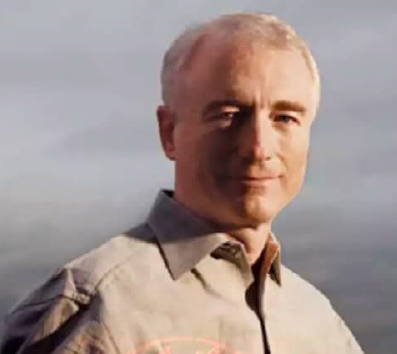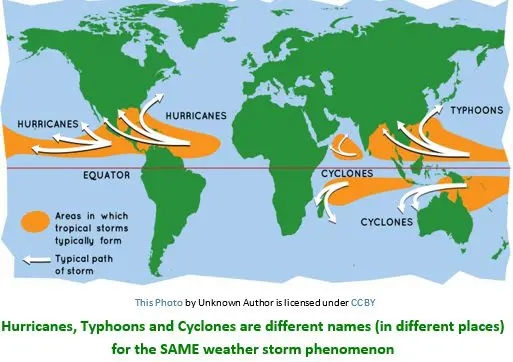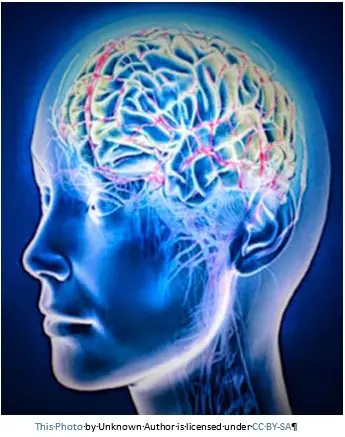A Dozen Things Learned During 2023
Wishing you a
Happy New Year filled with Interest.
It’s that time again. Sharing a few things that I’ve learned each year is always difficult. Picking out a variety and not getting too much into the weeds is tricky. The latter is tough because as I start reading more and more and the hour is gone, and then the next hour is gone.
I know that you are – like I am – overwhelmed with news and materials from myriad sources. I send thanks to loyal readers who keep Aging_With_Pizzazz as one of those sources. Admittedly, my dozen fragments are just tidbits to consider, but hopefully a bit of fun as well. I trust something will be new to you too.
“Never stop learning” is the phrase I keep in mind. My yearly dozen are short pieces and perhaps fun enough to repeat. I hope that there will be at least one of my content posts this coming year that you will share with friends, family or others. It helps me to help others to “Never Stop Learning.” If you’re on social media, it’s just a click’s effort.
1. Earth Overshoot Day 2023 Improved
 A couple years ago, I reported that Earth Overshoot Day was July 29th. Sadly, the following year, I didn’t share that it was July 28th, a scary sign. But in 2023 we saw a change to August 2nd. GOOD NEWS for 2023. The date represents the day when humanity consumes more natural or ecological resources than our planet can renew in a given year. If you remember, the goal is to move the date, at least a bit, each year. You can explore your own personal solutions to #MoveTheDate.
A couple years ago, I reported that Earth Overshoot Day was July 29th. Sadly, the following year, I didn’t share that it was July 28th, a scary sign. But in 2023 we saw a change to August 2nd. GOOD NEWS for 2023. The date represents the day when humanity consumes more natural or ecological resources than our planet can renew in a given year. If you remember, the goal is to move the date, at least a bit, each year. You can explore your own personal solutions to #MoveTheDate.
2. Hygienic Hypothesis in Action
 The term “hygienic hypothesis” relates to non-exposure to parasites, especially in the young. (I sate this in an overly simplistic way). Later in life this is linked to allergies. Interestingly, more recently it has been taken into action related to newborns. Some facilities and health care professionals are suggesting that new babies not be washed for a couple weeks. Dirty baby, maybe. Healthier baby, let’s hope so.
The term “hygienic hypothesis” relates to non-exposure to parasites, especially in the young. (I sate this in an overly simplistic way). Later in life this is linked to allergies. Interestingly, more recently it has been taken into action related to newborns. Some facilities and health care professionals are suggesting that new babies not be washed for a couple weeks. Dirty baby, maybe. Healthier baby, let’s hope so.
3. Copy and Paste
 I never really thought about it much, but this inventor has provided me a valuable short-cut in my life. I couldn’t even begin to estimate how many times I have used a ‘copy and paste’ function. It’s all thanks to an American inventor who died in 2020 at the age of 74. Born in NY City, Lawrence Gordon Tesler was a computer scientist who worked in the field of human-computer interaction. He worked for many well-known companies, and for most of us he certainly DID achieve better human-computer interaction. Next time you copy and paste, perhaps remember there is a face behind that time-saving function. Thinking of you, Mr. Tesler.
I never really thought about it much, but this inventor has provided me a valuable short-cut in my life. I couldn’t even begin to estimate how many times I have used a ‘copy and paste’ function. It’s all thanks to an American inventor who died in 2020 at the age of 74. Born in NY City, Lawrence Gordon Tesler was a computer scientist who worked in the field of human-computer interaction. He worked for many well-known companies, and for most of us he certainly DID achieve better human-computer interaction. Next time you copy and paste, perhaps remember there is a face behind that time-saving function. Thinking of you, Mr. Tesler.
4. Surprise Hurricanes –Increasing?
I had never heard of Surprise Hurricanes. They’re indeed a surprise to meteorologists. And it’s not a good surprise. These storms are fast moving with wind speeds that increase more quickly than ever before. The tools that usually track such storms and give us warning to prepare are not yet up to this task. Previously meteorologists considered a  quickly-increasing storm as one in which wind speeds increased 35 miles per hour each day. Hurricane “Otis” (in Mexico during October 2023) had “rapid intensification.” In the beginning of the day, it was a typical run-of-the-mill tropical storm with wind speeds from 35 or 45 miles/hour. By that night it had rapidly intensified to a category 5 hurricane with speeds up to 165 miles/hour. According to New York Times Meteorologist, Judson Jones, they had never recorded anything like this, that it was “totally off the charts.”
quickly-increasing storm as one in which wind speeds increased 35 miles per hour each day. Hurricane “Otis” (in Mexico during October 2023) had “rapid intensification.” In the beginning of the day, it was a typical run-of-the-mill tropical storm with wind speeds from 35 or 45 miles/hour. By that night it had rapidly intensified to a category 5 hurricane with speeds up to 165 miles/hour. According to New York Times Meteorologist, Judson Jones, they had never recorded anything like this, that it was “totally off the charts.”
Hurricanes (or cyclones in the Atlantic) need ocean water temperatures of 80 degrees. As this becomes more common with climate change, so will the hurricanes, and unfortunately, the surprise hurricanes. Evidently, in many of these cases, “sheltering in place” will become a norm. Inexpensive roof ties, to keep the roof attached to the home are a possible suggestion for safer sheltering-in-place.
5. Even MORE New Thoughts on Brain Cell Death (& Alzheimer’s)
 We’ve read about the abnormal proteins amyloid and tau developing in the brain. But recently researchers (in UK and Belgium) think they’ve found how they function together. This duo influences passive cell death (necroptosis. slightly different than the controlled cell death of apoptosis), leading to problems like Alzheimer’s. After decades of seeing individual parts, they have a better idea of how the problem progresses. Work published in the journal Science shows a direct connection. In the very simplest of terms, necroptosis usually happens when cells become inflamed and die off. Again, in simple terms, when inflammation happens, the amyloid clumps in plaques and the tau forms ‘tangles.’ When both things happen, the brain produces a molecule called MEG3. The good news is that using human cells in mice brains (sorry for that image). they figured out how to block the MEG3. The brain cells survived. It offers reasonable hope for medical treatment.
We’ve read about the abnormal proteins amyloid and tau developing in the brain. But recently researchers (in UK and Belgium) think they’ve found how they function together. This duo influences passive cell death (necroptosis. slightly different than the controlled cell death of apoptosis), leading to problems like Alzheimer’s. After decades of seeing individual parts, they have a better idea of how the problem progresses. Work published in the journal Science shows a direct connection. In the very simplest of terms, necroptosis usually happens when cells become inflamed and die off. Again, in simple terms, when inflammation happens, the amyloid clumps in plaques and the tau forms ‘tangles.’ When both things happen, the brain produces a molecule called MEG3. The good news is that using human cells in mice brains (sorry for that image). they figured out how to block the MEG3. The brain cells survived. It offers reasonable hope for medical treatment.
6. Military Salute
 The honor of a salute was recently portrayed in a Masterpiece Theater program (World on Fire). But I never knew (and you won’t learn it from the TV show) that the military salute is a symbolic motion that developed from medieval times. Armored knights raised their visors in honor to reveal their identity.
The honor of a salute was recently portrayed in a Masterpiece Theater program (World on Fire). But I never knew (and you won’t learn it from the TV show) that the military salute is a symbolic motion that developed from medieval times. Armored knights raised their visors in honor to reveal their identity.
7. Cholesterol & Genetic Changes
Loads of people have high cholesterol. One side of my family suffers from Familial Hypercholesterolemia (FH) an inherited mutation of (LDLR, APOB, or PCSK9) genes. FH affects the removal of cholesterol from the blood. That’s a bit more severe than general hypercholesterolemia (high cholesterol), which is more common. Here’s where CRISPER steps in.
Announcements were made that in a New Zealand experimental lab, with a US biotechnology company, CRISPER was used for the first time on hypercholesteremia. Sometimes called “CRISPER 2.0,” it’s technically a ‘base editing’ system which switches base pairs (substituting a single letter of DNA for another), meaning that this was not gene splitting, but swapping. NPR Science Friday chose this treatment as one of the Top 10 technologies to watch. When possible, it seems a lot easier to control or maintain our cholesterol levels, but this treatment (albeit expensive) may be a good fallback in the future. It could reduce one of the prime causes of mortality in the world – heart disease.
As many of you will have read, later in the year the FDA approved the first gene ‘editing’ Therapy for sickle cell disease (an excruciatingly painful condition leading to organ damage). The treatment is hopeful, while for the near-future, it will be expensive and difficult to obtain.
8. Iceland, Me and Guns
 I loved visiting Iceland a few years ago. That’s where the connection in the title ends, as I don’t currently own a gun. But Iceland has one of the largest gun ownership rates in the world. While the rankings change, other than the US which outpaces other counties by double or more, Iceland is either 10, 11th or 12th as I write. (I include a list below). However, while almost a third of that country owns guns, since 1990 there have been only a handful of shooting deaths. Thus, it has one of the highest rates of gun ownership and lowest rates of crime in the world.
I loved visiting Iceland a few years ago. That’s where the connection in the title ends, as I don’t currently own a gun. But Iceland has one of the largest gun ownership rates in the world. While the rankings change, other than the US which outpaces other counties by double or more, Iceland is either 10, 11th or 12th as I write. (I include a list below). However, while almost a third of that country owns guns, since 1990 there have been only a handful of shooting deaths. Thus, it has one of the highest rates of gun ownership and lowest rates of crime in the world.
Why? Do they need to resort to mere “thoughts and prayers?” No, but in US we might consider it a paradox to have many guns with low crime. Researchers have some theories about this contradiction. Basically, it comes down to four factors. 1) Economic equality; 97% of Icelanders are considered some level of middle or working class. Thus, tension between economic classes and monetary unfairness are almost nonexistent. 2) A strong Education system fosters a well-informed populace and fair wages. 3) A history of low violence and strong community bonds perpetuates the pride of continued low crime rates. 4) They have a responsible gun ownership culture. It’s a culture that supports safe firearm usage along with possession for hunting and colleting rather than violent acts. This promotes a nonviolent, socially-cohesive environment that includes gun ownership. Any number of these would be superior to thoughts and prayers alone.
Rates of Gun Ownership (per 100 people)
- United States – 120.5
- Falkland Islands – 62.1
- Yemen- 52.8
- New Caledonia – 42.5
- Serbia – 39.1 (tie)
- Montenegro – 39.1 (tie)
- Uruguay – 34.7 (tie)
- Canada – 34.7 (tie)
- Cyprus – 34
- Finland – 32.4
- Iceland – 32
- Lebanon – 31.9
 BTW, just for interest. Here is a picture near Grindavik, close to location of the dangerous volcanic activity in November/December 2023. Seen here is the Seltun Geothermal Field, a smelly place similar to other Sulphur areas.
BTW, just for interest. Here is a picture near Grindavik, close to location of the dangerous volcanic activity in November/December 2023. Seen here is the Seltun Geothermal Field, a smelly place similar to other Sulphur areas.
9. CoQ10 – a Rose by any Other Name?
CoQ10 is an antioxidant that has been popular for decades. It’s often listed as an ‘aka’ for Ubiquinol. However, as we get older (actually starting around 40), your body has a more difficult time converting the conventional CoQ10 into Ubiquinol. It still happens; it just becomes less efficient and effective. Some of us at AgingWithPizzazz in our 2nd 50 years may wish to supplement with Ubiquinol, the more advanced form of CoQ10. (Portion of info from NIH.) I considered including a diagram of how the conversion works but didn’t want us to feel like our brains were hurting.
10. Why You May Not Like the Treadmill
 Many came before him, but when British writer Oscar Wilde was sentenced to two years in prison for his sexual orientation (1895), hard labor awaited him. Not what we might expect, however. He faced the treadmill, which was actually designed as a 2-story instrument of punishment, with only periodic minutes of rest. Yes, long before the fancy Exercise machine was jokingly referred to as a torture device by many of us, it was truly a penalty. While it had some more positive history for grain grinding, in the penal society, according to the BBC, “It was a useless but exhausting task that fitted with Victorian ideals about atonement achieved through hard work.”
Many came before him, but when British writer Oscar Wilde was sentenced to two years in prison for his sexual orientation (1895), hard labor awaited him. Not what we might expect, however. He faced the treadmill, which was actually designed as a 2-story instrument of punishment, with only periodic minutes of rest. Yes, long before the fancy Exercise machine was jokingly referred to as a torture device by many of us, it was truly a penalty. While it had some more positive history for grain grinding, in the penal society, according to the BBC, “It was a useless but exhausting task that fitted with Victorian ideals about atonement achieved through hard work.”
Historian Cregan-Reid said the 5-6 hours a day to which Wilde was condemned “practically killed him. When he came out of prison, he died about three years later.” Wilde referred to it in his poem, The Ballad of Reading Gaol (available to read from the Poetry Foundation).
11. Moloch’s Trap in Today’s World
 Maybe you’ve read this in relationship to game theory, or economic meltdowns, but I never had. It’s a valid warning for me as I can relate to the term FOMO – fear of missing out. Moloch’s trap is part FOMO, part selfishness and greed and part “because I can, and don’t want anyone else to win.” A seductive but dangerous concept – a race toward something we don’t want. Yet, we can’t help ourselves from ‘running’ the race since someone else may be sprinting.
Maybe you’ve read this in relationship to game theory, or economic meltdowns, but I never had. It’s a valid warning for me as I can relate to the term FOMO – fear of missing out. Moloch’s trap is part FOMO, part selfishness and greed and part “because I can, and don’t want anyone else to win.” A seductive but dangerous concept – a race toward something we don’t want. Yet, we can’t help ourselves from ‘running’ the race since someone else may be sprinting.
The trap (like the old demon, Moloch) convinces you to play, and that’s our undoing. The idea is that it is not the actual game that is bad but the force that entices us. It has a tremendous short-term payout for someone(s) but eventual ultimate destruction for everyone. There are modern day topics which bring this darkness to the light, for instance gene editing, as mentioned elsewhere in my dozen list, human cloning or the accelerated race for AI. These serve as suitable examples because the game itself (the technologies) have something good to offer. The trap is where they might lead us, and who will reap the short-term winnings before eventual collapse. I wonder if humanity can be smart enough to avoid the trap?
12. Cosmic Beauty of Resonant Orbits
 A 100 light-years away from us, in the constellation Coma Berenices of the Milky Way, astronomers have discovered six planets orbiting in sync. A bright nearby star is the centerpiece of their perfect rhythmic harmony. They describe it as a rare, frozen-in-time cosmic wonder that can help explain how solar systems across the galaxy came to be. The Transiting Exoplanet Survey Satellite (TESS) has found over 7,000 planet-candidates since the first in 1995. The James Webb telescope will be used to evaluate the atmosphere later. Possibility due to no space garbage, asteroids or meteorites, none of these 6 planets have gotten ‘out of sync’ like in our solar system. What a lucky neighborhood.
A 100 light-years away from us, in the constellation Coma Berenices of the Milky Way, astronomers have discovered six planets orbiting in sync. A bright nearby star is the centerpiece of their perfect rhythmic harmony. They describe it as a rare, frozen-in-time cosmic wonder that can help explain how solar systems across the galaxy came to be. The Transiting Exoplanet Survey Satellite (TESS) has found over 7,000 planet-candidates since the first in 1995. The James Webb telescope will be used to evaluate the atmosphere later. Possibility due to no space garbage, asteroids or meteorites, none of these 6 planets have gotten ‘out of sync’ like in our solar system. What a lucky neighborhood.
****
Finally, to leave you with an uplifting New Year feeling, I thought I’d share some music inspired by the ‘Cosmic Beauty’ of #12. I am offering you your choice. Depending on age and musical taste, pick your favorite.
Fly me to the Moon (Forgive me for not including Frank’s version, but this one’s great too.)
Rocket Man (Elton John)
Space Oddity (David Bowie sings of Major Tom)
If you don’t like any of those, here are two very different choices.
- Pual Welder performing Andromeda with BBC Orchestra: https://youtu.be/RgMEYMXacmc
- Or for a laugh: “Galaxy Song” By Monty Python https://youtu.be/buqtdpuZxvk
—
References:
Surprise Hurricanes. Why Hurricane Otis Caught Many By Surprise – The New York Times (nytimes.com.
MEG3 and Brain Cell Death. Research from KU Leuven in Belgium and the Dementia Research Institute of University College London: https://press.vib.be/new-study-discovers-how-neurons-die-in-alzheimers-disease.
Cholesterol & Genetic Changes. MIT Technology Review: Editing cholesterol genes could stop the biggest killer on earth | MIT Technology Review. And Science Friday: Technology Trends to Watch in 2023 sciencefriday.com.
CoQ10. Redox status of coenzyme Q10 is associated with chronological age. Redox status of coenzyme Q10 is associated with chronological age – PubMed (nih.gov)
—
The post A Dozen Things Learned During 2023 appeared first on Aging with Pizzazz.























